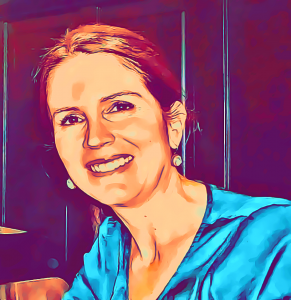183 Letter from Patrícia Pinto

I was very pleased with the invitation to participate in this book and share some of my experience in tourism research with my female colleagues. I would say that my path in tourism is quite unusual. I concluded my PhD in 2004 in Quantitative Methods Applied to Economics and Management, and I did my thesis applied to modelling consumer behaviour towards pro-environmental practices. Until then, I had no contact at all with the tourism field. I started researching tourism one year after, in 2005, when Antónia Correia invited me to collaborate with her in a research paper. Since then, my consumer behaviour models have started to be mainly applied in tourism, and I can say that I am very proud of my contribution to the field. From 2005, tourism research has allowed me to supervise brilliant PhD students, and some of them are now dear colleagues and friends. It also allowed me to be involved in coordinating the first PhD program in Tourism in Portugal, and, currently, being responsible for the most important research centre in Portugal, CinTurs, the Research Centre in Tourism, Hospitality and Well-being. Despite my immense responsibility with CinTurs, I still consider myself mainly a dedicated teacher at the Faculty of Economics, University of Algarve.
If my career ended now, I would look at the past with the feeling of “well-done work” and immense gratitude. I work still 16 years old, giving math classes to friends and colleagues. I now struggle to do well a vast number of different tasks in my diversified work branches, mainly as a professor, researcher, and coordinator of CinTurs. Sometimes I complain (a lot, I have to confess) about being involved in so many things, but the fact is that I love working and my job(s). Indeed, I feel I am a fortunate person: I have the opportunity of spending a big part of my day doing something I adore.
Nowadays, and in the past, I’ve been working with inspiriting male and female colleagues and students. I only assumed a huge management responsibility a few years ago with CinTurs. Until then, I was only a researcher and teacher, distracted from the gender unbalance in top management positions. I have to admit that I always considered quotas for females in leading positions as humiliating and unnecessary. From my perspective, merit, not gender quotas, should be the way to achieve that positions. My opinion didn’t change but, today, observing that top categories are still mostly occupied by men (and brilliant men are not more numerous than brilliant women), I understand that, unfortunately, these quotas are needed in most professions.
Well, since this forum is giving me the opportunity of sharing some recommendations with my female colleagues, I end with a few tips:
1) Don’t forget what motivated you to enter the academy. In my case, it was the opportunity to teach. So, I try to bring my research to classes, improving them by including my research findings. Moreover, the academy is much more than research. So, try to be enrolled in the other essential issues of your university, including some management tasks, even if you don’t like it a lot;
2) Thoughtfully ponder before accepting to supervise a PhD student. Concluding a PhD is a dream for many students. However, not all of them have the conditions (for example, time availability and minimum research competencies) to develop their work, which means they will require a lot of dedication from you. So, if you are involved in many other tasks (including accompanying many other students), it is preferable to decline their supervision. Inversely, once you accept supervising PhD students, really be there for them. Don’t be the person they contact and who don’t give them feedback on time;
3) Have the best teams with you. That applies to developing research projects, organizing a conference, writing a paper or co-supervising a thesis. We are not all compatible, but there are colleagues with whom working is a pleasure, and that has nothing to do with status or qualification. So, avoid working with colleagues you know will not do their parts on time and with the needed dedication and care. “Bad” colleagues can be good friends, but you don’t need to stress trying to work with them.
4) Be the person you would like to have in your research team. This is especially important when you are in charge of coordinating the team. In my view, this is much more than just doing “your part” of the work well. It includes respecting those working with you, making them comfortable giving you suggestions for improving the work, and valorizing (that includes praising) their contribution. It also includes respecting their time (and leisure) work, i.e., don’t email them with urgent requests after hours or during weekends, or calling their attention for less well-done work in public. In short, create a stimulating work environment that makes others willing to work with you;
5) Enjoy all the benefits of doing research. Don’t think you’re too old to go to a conference to present your article. Conferences are an excellent opportunity to get to know other countries and cultures, expand your network of contacts and meet the experts in your research topic. Anyway, how can we talk about tourism without travelling?
6) Never forget that your life is much more than research and the academy. Have hobbies, dedicate enough time to family and friends, and, more important, take good care of you.
Best Wishes,

Patrícia Pinto
Faculty of Economics and Research Centre in Tourism, Hospitality and Well-being (CinTurs), University of Algarve, Portugal

